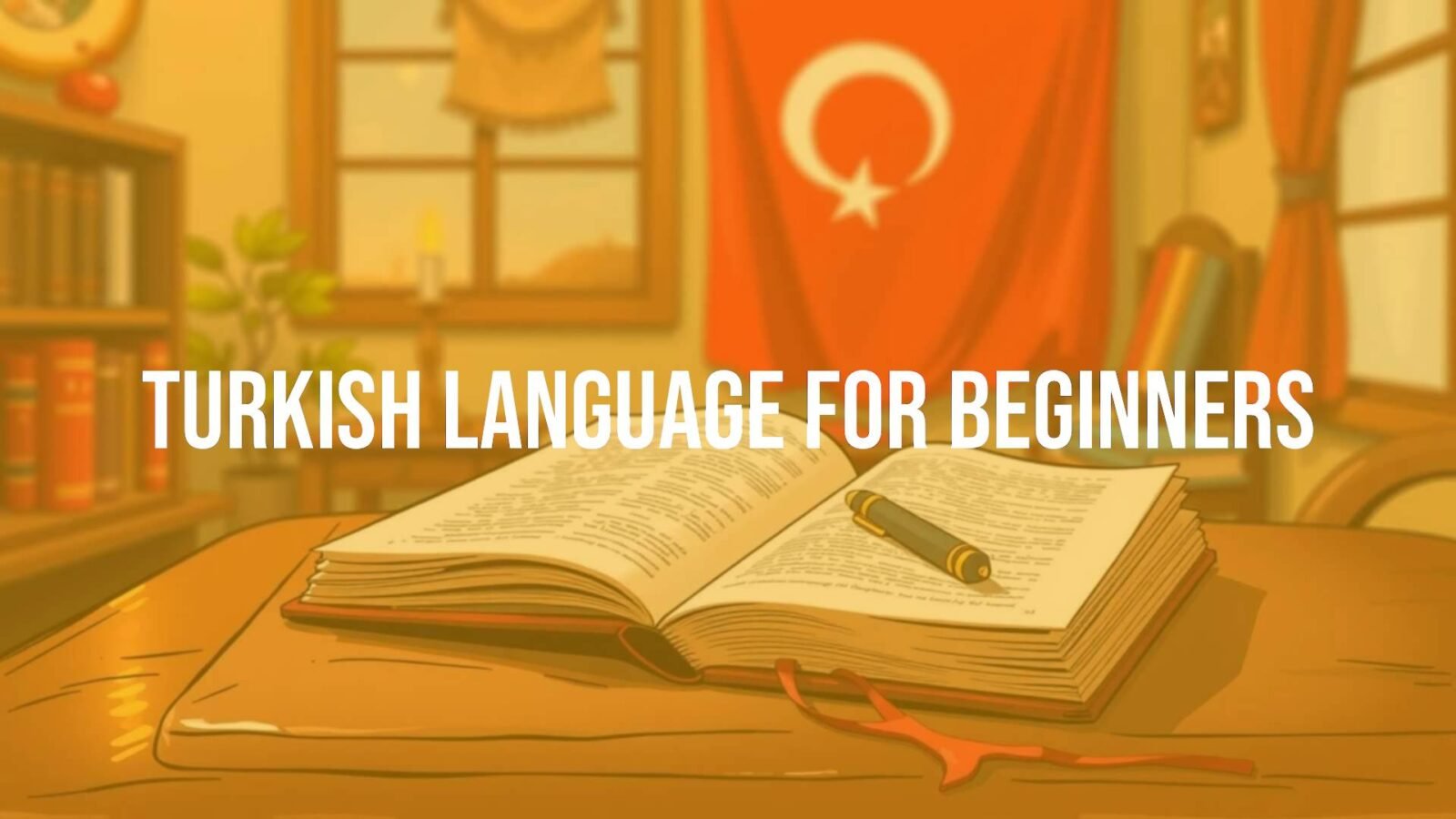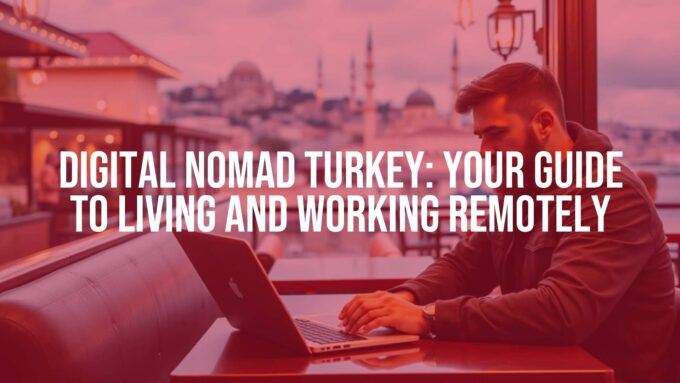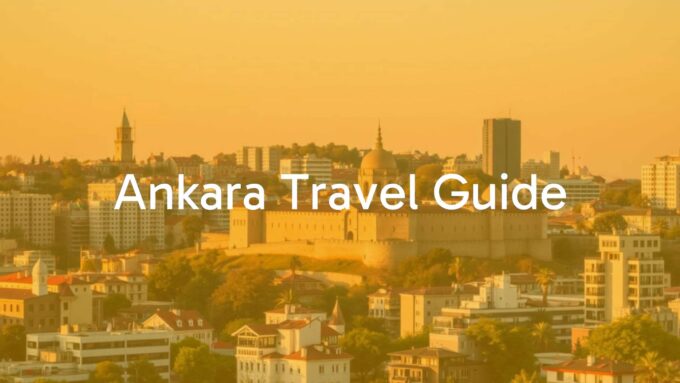Turkey’s startup scene is growing fast and changing into a lively, global player. This rise comes from several strengths working together: a young, digital-first population, strong government backing, growing corporate investment, and a large pool of skilled, cost-effective tech talent. This is not a passing phase. A steady entrepreneurial spirit has adjusted to both local and global challenges and has drawn interest from investors at home and abroad.

The ecosystem is maturing quickly. We see more investment, a wider set of unicorns and decacorns, and a clear shift to global, market-independent business models. This article looks at the main drivers, headline numbers, key hubs, support systems, leading sectors, and standout success stories shaping startups in Turkey today.
What Drives Growth in the Turkish Startup Ecosystem?
Key Factors Shaping Startup Culture in Turkey
Turkey’s young population sets the tone. Nearly half of the country is under 30, and more than 100,000 engineers graduate each year. Startups benefit from this large, skilled, and affordable talent base. Young, tech-savvy builders give the ecosystem its energy.
Government programs help build this base. The “National Technology Initiative” targets a strong startup and innovation network. “Start in Türkiye” by the Investment Office, the “Türkiye Tech Visa” launched in September 2024, and “Terminal Istanbul” (turning Atatürk Airport into a global tech hub) aim to bring in talent, capital, and partnerships. These moves support current startups and set the stage for future growth and global reach.
Market Readiness and Early Success Stories
Turkey is highly connected online. It ranks among top markets for Instagram, Twitter, TikTok, YouTube, and LinkedIn, and is 7th worldwide for mobile app downloads. This makes Turkey a strong test market and launchpad for new products.
Early wins helped the next waves. In the late 1990s, firms like Yemeksepeti and Gittigidiyor showed the strength of internet ventures. After 2008, global investors arrived and companies like Trendyol and Peak Games took off. Alumni from these leaders now build new startups, often with global plans from day one. This cycle of experience and new ventures keeps the ecosystem moving forward.
Turkish Startup Ecosystem by the Numbers
Startup Activity and Funding Trends
Investment has jumped. Turkish startup deal volume rose from $497 million in 2023 to about $2.6 billion in 2024, a 423% increase. Deal count also grew from 297 to 331. By comparison, global VC rose from $344 billion in 2023 to $368.3 billion in 2024.
In the first half of 2025, startups in Turkey raised $211 million across 91 rounds. While lower than 2024’s total, it shows a more selective market. Fintech, gaming, and AI still lead. Seed round sizes in Turkey are less than half of Europe’s average, which makes it harder to reach Series A and later stages.
| Metric | 2023 | 2024 | H1 2025 |
|---|---|---|---|
| Total funding | $497M | ~$2.6B | $211M |
| Deal count | 297 | 331 | 91 |
Notable Investment Totals and Deal Flow
Istanbul is the main hub. Its Ecosystem Value was $12.9 billion (H2 2022-2024) vs. a global average of $20.4 billion. Exits from 2020-2024 totaled $4.8 billion. The city has 2 active unicorns (global average: 4). VC funding in Istanbul (seed, Series A, Series B+) hit $6.4 billion in H2 2022-2024, above the global average of $5.2 billion. Median seed round was $487,000 (global: $889,000). Median Series A was $2 million (global: $6.8 million), showing a later-stage gap.
In 2023, Turkey saw 325 deals and $722 million invested. While the EU and US deal counts fell by 20% and 18% after the pandemic, Turkey’s deal count slipped only 0.9% from 2020 to 2023, pointing to a steady investment scene despite global pressure.
| Istanbul (H2 2022-2024) | Value | Global Avg |
|---|---|---|
| Ecosystem Value | $12.9B | $20.4B |
| Total VC funding | $6.4B | $5.2B |
| Median Seed | $487K | $889K |
| Median Series A | $2M | $6.8M |
| Active Unicorns | 2 | 4 |
Venture Capital Fundraising in Turkey
VC activity is growing. In 2023, new funds’ AUM passed $360 million, with 80 new funds launched. Tax benefits for large companies investing in VCs, especially Turkey-focused ones, support this rise. Over the last five years, total VC fundraising reached $1.4 billion.
In H1 2025, 45 new VCIFs were approved, bringing the total to 499 (478 active). Larger minimum fund sizes are expected to build a healthier fund base. Revo Capital’s third fund made its first close and started new deals in H1 2025.
Foreign Investor Participation
Foreign interest is a key signal. While the share of foreign-led rounds seemed higher in H1 2025 due to fewer rounds overall, foreign investors joined only 17 rounds, 7 of them in gaming. This shows steady international interest in Turkish gaming.
Large checks still arrive. In 2024, Kaspi.kz invested $1.1 billion in Hepsiburada. “Start in Türkiye” helps bring in global capital with funding access, investor links, and regulatory support, and the “Türkiye Tech Visa” aims to bring more international talent and investors to Turkey.
Major Startup Hubs and Regional Strengths
Istanbul as a Leading Innovation Center
Istanbul, a city of 16 million, is the core of Turkey’s startup activity. It sits at the crossroads of Asia and Europe and connects to many major markets. Its business ecosystem runs on a strong economy, government support, and rising corporate spending on venture capital, R&D, and innovation.
The city’s global standing is rising. Istanbul ranks #3 among Emerging Startup Ecosystems, up 10 spots from 2024. It is a Top 25 Global Ecosystem in Funding and Top 15 in Europe for Performance. It ranks #4 in Europe for Affordable Talent. Thousands of events each year, like Take Off Istanbul 2024 with 250+ startups, 125 investors, and 15,000+ visitors from 33 countries, help founders meet customers and backers.

Ecosystem Highlights in Ankara, Izmir, and Beyond
Other cities add depth. Ankara and Izmir have long roots in research and industry and act as talent centers through strong universities and local business bases. These regions are building their own strengths and adding variety to the national scene.
The “National Technology Initiative” aims to grow startups across the whole country. As the network matures, we can expect more detail on regional strengths and their unique roles.
Key Organizations and Support Structures
Startup Accelerators and Incubators
Turkey has a strong network of accelerators and incubators to grow early ideas into real companies. Key programs include:
- BTM (Business Technology Center): full support from idea to commercialization and growth.
- ITU SEED: training, consulting, mentoring, networking, corporate partners, media support, and investor access.
- Cube Incubation (Teknopark Istanbul): the first deep-tech-focused center in Turkey, bringing founders, investors, and partners together.
- YTU Startup House: one of the largest in Turkey, offering training, mentors, space, prototyping, funding links, and sector programs in gaming, fintech, health, and insurance.
Venture Capital Funds and Angel Networks
Funding options keep expanding. Turkey counts 278 VC funds of different sizes, many launched in recent years.
- Galata Business Angels: the first angel network in Turkey, backing early-stage teams with capital and mentoring.
- VCIF regulations (2024): allow investment in startups at home and abroad, with a focus on Turkish diaspora-led ventures.
- ITÜ ARI Teknokent VCIF: planned launch in September 2025 with an initial $25 million fund.
University and Government Initiatives
Universities and public agencies play a big role. The Istanbul Development Agency supports regional growth, long-term sustainability, and cooperation among public bodies, private companies, and NGOs.
The Ministry of Industry and Technology, led by Mehmet Fatih KACIR, drives the “National Technology Initiative.” The Investment Office’s “Start in Türkiye” program helps startups set up and scale with funding access, investor networks, and regulatory guidance. The “Türkiye Tech Visa” (since September 2024) invites tech professionals and startups with new business models. The Trade Ministry’s “Service Sector Support” helps with market research, branding, hiring, and global fairs.
Top Sectors Powering Turkish Startups
Fintech: New Financial Technologies
Fintech draws large checks thanks to high digital use in Turkey. Banks and VCs both target this field. Colendi in Istanbul raised $65 million led by Citi Ventures in May 2024 and aims to top $150 million by year-end on a path to a $1 billion valuation.
Colendi plans to grow across EMEA, the GCC, and Turkic states, and reach 1 billion users in markets like Pakistan and Indonesia. In H1 2025, fintech startups raised $97.1 million, with Sipay and Fimple taking 93% of that total. FinSmart AI, backed by TT Ventures, offers AI-based CFO tools for SMEs, showing the range of fintech use cases.
Gaming and Esports Innovation
Turkey’s gaming market is worth about $1.5 billion and may pass $2 billion within two years. The country hosts 13 game-focused funds and accelerators for early backing and guidance. Many global VCs track the space, and the industry is expected to produce five unicorns within a decade.

Gaming startups set a record $362 million in 2022, placing Turkey 4th worldwide after the US, Singapore, and the UK. In H1 2025, gaming raised $72.4 million, spread across several teams rather than just a few. Unicorns include Dream Games and Peak Games; Dream Games reached unicorn status in only 23 months. Of the foreign-led rounds in H1 2025, seven were in gaming, showing steady global interest.
Artificial Intelligence and Deep Tech
AI and deep tech are rising fast, backed by Türkiye’s 11th Development Plan and the National AI Strategy (2021-2025). In 2024, AI startups raised $715.8 million. Insider, an AI-native customer engagement platform, closed a $500 million round, the largest AI deal that year.
In December 2024, Datapad raised $500,000 to improve Business Data Analytics with AI agents that make insights easier to use. The Istanbul Blockchain Women Association, with the EIT Deep Tech Talent Initiative, aims to train one million deep tech professionals by 2025 and increase women’s roles in tech and cybersecurity. AI startups raised $12.6 million in H1 2025.
Other High-Growth Startup Industries
Beyond fintech, gaming, and AI, other areas stand out:
- SaaS: Insider leads in B2B SaaS; Opsgenie’s sale to Atlassian inspired many. Akinon and Picus Security are strong examples.
- E-commerce and quick commerce: Hepsiburada and Trendyol are decacorns; Getir made grocery delivery a major category.
- MarTech: startups use digital tools to boost marketing performance.
Selected Turkish Startup Success Stories
Notable Exits and Acquisitions
Since 2013, exits by Turkish startups have created over $7 billion in value. Opsgenie raised $10 million and later sold for nearly $300 million to Atlassian, inspiring many B2B SaaS founders to go global.
Peak Games is another landmark. After an $18 million raise, it sold for $1.9 billion. Zynga also bought Peak’s casual studio for $100 million and Gram Games for $250 million. These deals highlight Turkey’s strength in gaming and the potential for large outcomes.
Breakthrough Innovators in the Ecosystem
Insider stands out in B2B SaaS, operating across 16 countries in Eurasia and backed by Sequoia at Series B. Colendi pushes forward in fintech with a $65 million round and regional expansion plans. In gaming, Dream Games reached unicorn status in under two years. Getir and Papara show scale in consumer services and products.
Game-Changing Platforms and Technologies
FinSmart AI gives SMEs a “digital CFO” with AI tools, helping teams that lack full-time finance leaders. This solves real pain points using practical tech.
The Trade Ministry’s “Easy Export Platform” applies AI for B2B trade data, covering tariffs, business culture, and market info. Its “Team Expert Intelligence” chatbot provides quick answers. The Istanbul Blockchain Women Association’s training push in deep tech and cybersecurity will feed more advanced platforms over time.
Fundraising Bottlenecks and Access to Capital
Early-Stage Funding Challenges
Early rounds remain a weak spot. Seed rounds in Turkey are less than half of Europe’s average. Many teams struggle to raise enough at seed to grow into Series A. Some pivot heavily or move abroad to find bigger checks.
High interest rates, rising inflation, and global pressures hit seed funding in H1 2025, leading to a 43% drop. Fixing the “post-seed gap” is seen as the most important need for steady growth and calls for action by investors, public bodies, and support programs.
New Investment Funds and Recent Deals
New funds are forming. In 2023, 80 funds launched, with $360 million+ in AUM for new vehicles. In H1 2025, 45 more VCIFs were approved, reaching 499 in total (478 active). Higher minimum fund sizes may slow launches a bit but should build a healthier base.
In H1 2025, Revo Capital’s third fund made its first close and started investing. The ITÜ ARI Teknokent fund is set to start in September 2025 with $25 million and a second vehicle planned for 2026. These funds help fill gaps and open new paths for founders.
Strategies for Attracting Foreign Investment
Bringing in foreign capital remains a top goal. The “Türkiye Tech Visa” (since September 2024) aims to draw tech talent and startup teams, which can also lead to more overseas funding.
“Start in Türkiye” supports setup and scale with funding links, investor networks, and help on global growth. VCIF rules from 2024 also let funds back diaspora-led ventures abroad. Large deals like Kaspi.kz’s $1.1 billion Hepsiburada investment show that big foreign checks do arrive. Better rules, strong case studies, and active outreach at events like Take Off Istanbul can keep this momentum.
Market-Independent Business Models and Global Ambitions
Export-Driven Startups and International Expansion
A new wave of founders is building export-first companies aimed at global markets from day one. Past political and market swings pushed many to look outward early. Founders often keep product teams in Turkey and build sales and operations abroad, similar to models in Israel, Estonia, and Sweden.
Insider’s growth across 16 countries shows how this works. Sinemia launched directly in the US and reached multi-million-dollar ARR in under six months. Botanalytics, AppSamurai, and FXCubic also sell mainly to Western markets from the start. This shift to tech exports shows the adaptability of Turkish founders.
‘Easy Export Platform’ and Trade Empowerment
To support export-led growth, the Trade Ministry launched the “Easy Export Platform” at the end of 2020. It uses AI for B2B trade data, including customs classifications and business culture tips, helping companies handle cross-border trade with fewer hurdles.
Since August 2024, a new team focuses on B2C exports, giving details on marketplaces, youth profiles, languages, social media habits, and influencer data. The “Team Expert Intelligence” chatbot lets users get this info fast without complex menus. Together, these tools give startups a strong base to go global.
Current Challenges and Opportunities for Startups in Turkey
Internal Obstacles and Regulatory Concerns
Despite the upward trend, problems remain. The “post-seed gap” makes it hard to move from seed to Series A and beyond. Without steady follow-on capital, teams slow down or look overseas after early growth.
Rules are improving but can be hard to work through for young companies. Legal and admin steps can be complex. High interest rates and inflation in H1 2025 also raised the cost of capital. Targeted policies and more local later-stage funding would help fix these issues.
External Risks and Investor Confidence
External risks can shape investor views. Geopolitical tensions and global market swings can slow foreign capital. After 2012, political and economic stress pushed foreign money away, and it took time to recover. Perception matters.
Even so, Turkey offers clear strengths: the largest economy and youngest population in its wider region, plus a deep, cost-effective tech talent pool. Strong performance in gaming and rising global rankings for Istanbul are good signals. The goal is to keep showing resilience and create a setting that limits external risk, so both local and foreign capital feel confident for the long haul.
What’s Next for the Turkish Startup Ecosystem?
Emerging Trends and Future Outlook
Several trends point to strong years ahead. More startups will be built for global markets from day one, which should bring more overseas customers and investors. Deep tech will gain speed-advanced AI, blockchain, and cybersecurity-helped by training plans like the one aiming to prepare one million deep tech professionals by 2025.
Gaming and esports look set to keep growing past $2 billion within two years, with up to five unicorns expected over a decade. The VC market is getting more mature, with new funds and bigger mandates, which should ease early-stage gaps over time. A young, digital-native population keeps Turkey a great test bed for new ideas and apps.
Opportunities for Collaboration and Growth
New platforms and programs open the door to more teamwork and scale. “Terminal Istanbul” aims to host thousands of startups and major events, boosting connections. The “Türkiye Tech Visa” and “Start in Türkiye” will keep pulling in global talent and partners. The ITÜ ARI Teknokent fund, along with active accelerators and incubators, will supply structure and capital for future unicorns.
Successful exits and decacorns like Trendyol and Getir spark a spillover effect, with alumni founding new companies and recycling experience and wealth. Support for the Turkish diaspora expands access to funding, mentors, and markets abroad. By encouraging smart risk-taking, offering strong support systems, and using its young talent and strategic location, Turkey is set for long-running impact on the global startup map. The move from a young scene to a global force is well underway.















Leave a comment